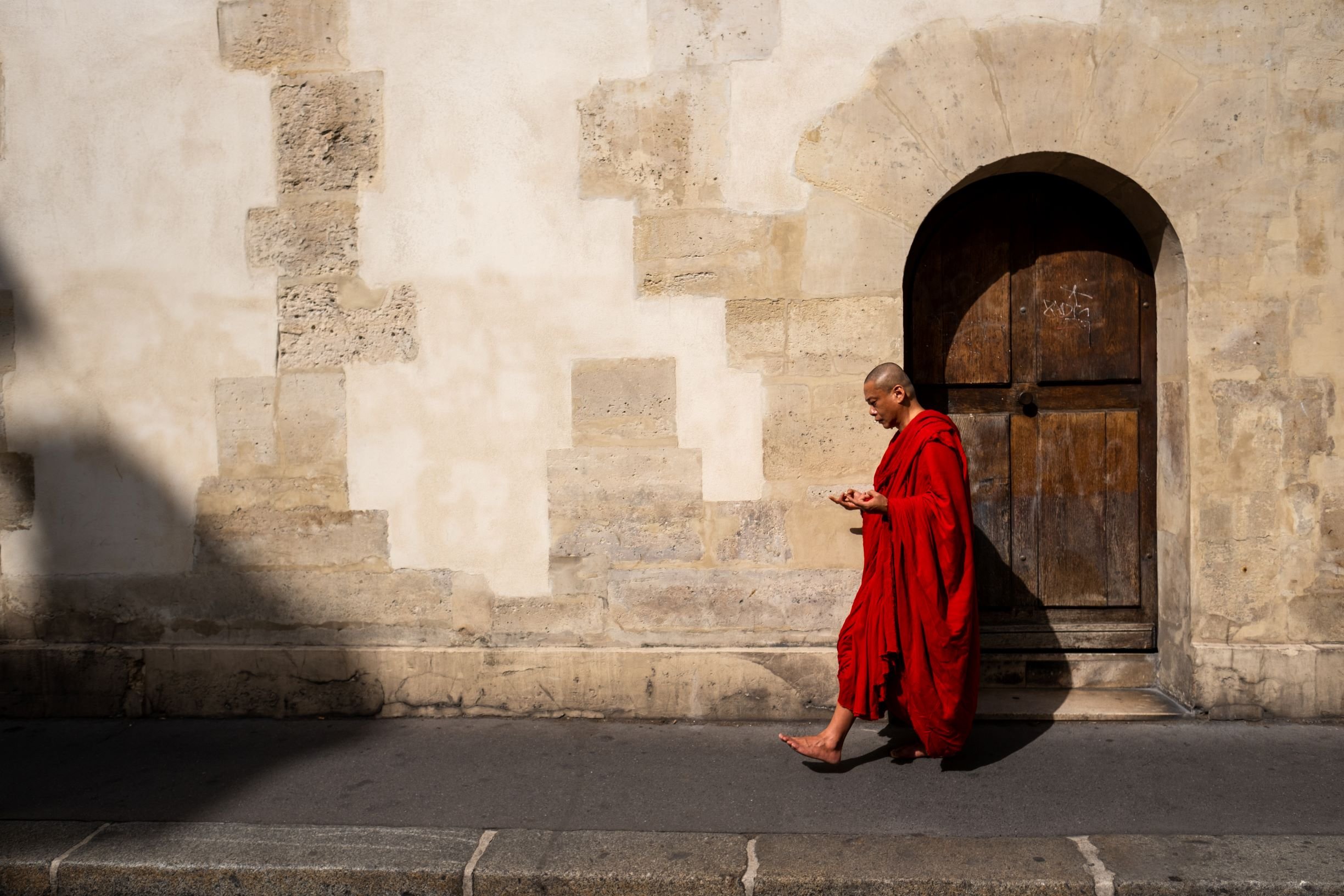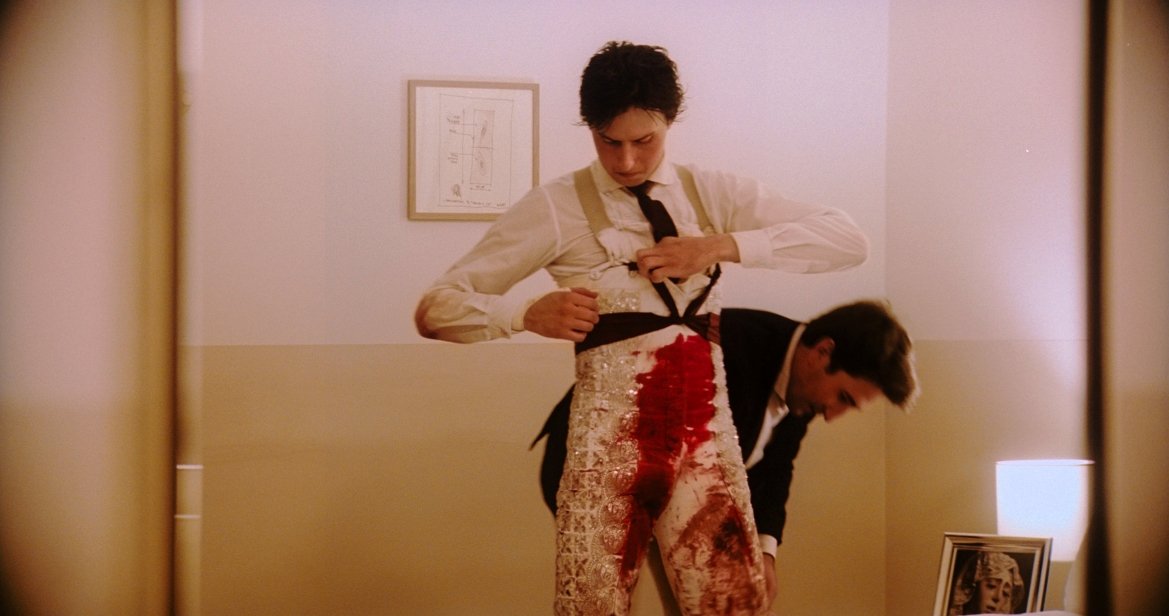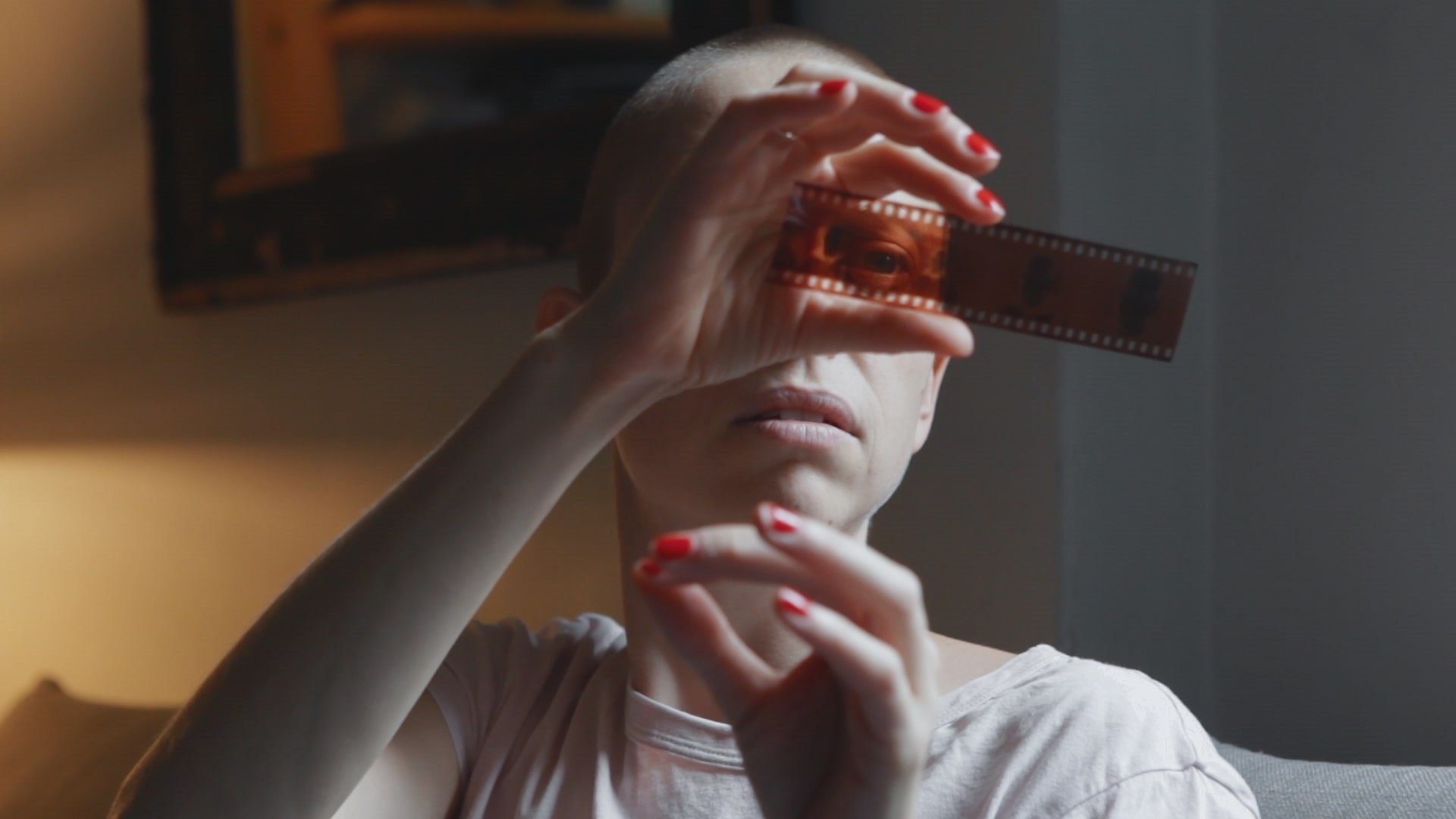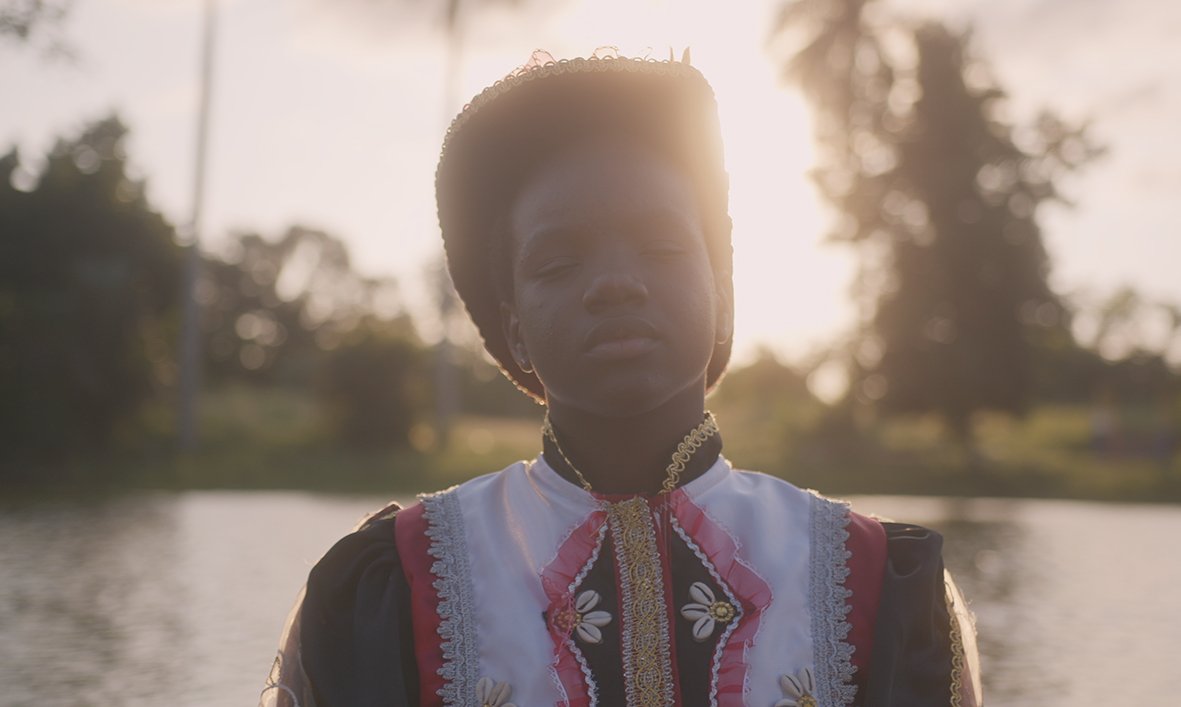The 28th Ji.hlava International Documentary Film Festival starts in two weeks. The programme will offer more than three hundred films and includes a revealing retrospective of Swiss filmmaker Anne Marie Miéville and a showcase of award-winning Taiwanese director Tsai Ming-liang. The festival will be attended by director Kirsten Johnson, the author of this year's Ji.hlava festival trailer, and directors Roberto Minervini, Albert Serra and Andrei Ujică. The 28th IDFF Ji.hlava will take place on October 25 – November 3, lasting for the first time ten days.
This year, the Ji.hlava IDFF will offer 340 films in both competition and non-competition sections, of which 129 in the world premiere, 23 in the international premiere and 11 in the European premiere.
“The programme of Ji.hlava shows the extraordinary power of documentary film. Documentary filmmakers replace the literalness of reality with playfulness and originality of thought. They show us the world as we could hardly see it ourselves – unless, like them, we would like to spend long years with a camera in those places,” says Marek Hovorka, the festival's director. “Dialogue has been important to Ji.hlava since its beginning, so of course the screenings will be followed by talks. I am delighted that the audience will be able to meet many filmmakers in person, including Kirsten Johnson, Tsai Ming-liang, Roberto Minervini, Andrei Ujică and Albert Serra.”
Trailer of the 28th Ji.hlava directed by Kirsten Johnson
Each year, Ji.hlava invites one director to honour the festival with a festival trailer. After Jean-Luc Godard, Godfrey Reggio, Artavazd Peleshyan, this year's Ji.hlava spot was directed by American documentary filmmaker and cinematographer Kirsten Johnson. “Kirsten Johnson's trailer plays with Kafkaesque transformation on the border of life and death, dream and fantasy. She moves the scene from the family archive to an imaginative world, allowing for a different reading each time. The minute-long film becomes a poem that gets stuck in our heads like a memory of our own childhood and its endless imagination,” says Hovorka. Director and cinematographer Kirsten Johnson, who was awarded the Jury Prize for Innovation in Nonfiction Storytelling at Sundance for her latest film, will present her thoughts on the transformation of film from the celluloid to the digital era during her Masterclass at Ji.hlava.
Tsai Ming-liang
Another guest of this year's Ji.hlava will be the award-winning director, a leading representative of the Taiwanese New Wave, Tsai Ming-liang. Seven of his films, as well as a Masterclass, will be offered in the Tribute: Tsai Ming-liang section. The programme includes the classic Goodbye, Dragon Inn (2003), a cinephile farewell letter to Taipei cinema (Critics' Award at the Venice Film Festival), as well as the later Where (2022), which belongs to the director's famous “Walker” series of films, the hero of which is a Buddhist monk walking very slowly. Between slow cinema, conceptual art and performance, his films deal with themes of loneliness, time and memory. The Tsai Ming-liang retrospective was supported by the Ministry of Culture Taiwan and the Taipei Economic and Cultural Office in Prague.
Roberto Minervini
Back in 2020, Ji.hlava presented a tribute to Roberto Minervini, a celebrated Italian director based in the USA, which was eventually only held online due to the covid pandemic. This year, Minervini will attend Ji.hlava in person to share with audiences his working methods during a Masterclass. He will also introduce his latest films The Damned, depicting the US Civil War in 1862 (Directing Award in the Un Certain Regard section at Cannes this year), and his earlier documentary Stop the Pounding Heart (2014), about a strongly religious Texas family of goat farmers. “My approach hasn't changed. I work with narratives and build stories around them,” Minervini explains his approach to directing, which is specific to the intermingling of documentary and fiction filmmaking techniques.
Andrei Ujică
After thirteen years, Romanian director Andrei Ujică returns to Jihlava, where his Autobiography of Nicolae Ceauşescu won the Best Central and East European Documentary Award in 2010. This time, Ji.hlava audience can look forward to TWSD – Things We Said Today, which premiered a month ago at the Venice Film Festival. This cinematic essay explores what is still present today of the divided America of the 1960s. Andrei Ujică, one of the most original filmmakers working with archival and found-footage material, will detail his method during his Masterclass.
Albert Serra
The Catalan film director and author of last year's Ji.hlava trailer, Albert Serra, will also present his new film Afternoons of Solitude in person. The film about the toreador star Andrés Roca Rey is an aesthetically captivating probe into the world of corrida. The film depicts not only the preparatory rituals and flashy costumes, but above all the famous bullfighter in the bull ring. The explicit depiction of the violence perpetrated in this controversial tradition raises the question of whether the animal or the human is the originator of the brutality of corrida.
Opus Bonum: Life in Belarus and in a psychiatric clinic
What will competition sections offer this year? The Opus Bonum section, which presents the trends and tendencies of world documentary film, includes 13 films.
Tomasz Wolski's film A Year in the Life of a Country, uses lesser-known archival footage to go back to December 1981, when the Polish government declared a state of emergency in response to the growing influence of the Solidarity trade union movement. In a collage edited with a flair for the absurd, the director includes not only the dramatic clashes between protesters and the repressive apparatus, but also the fact that some of the citizens were more concerned about empty store shelves than about unfreedom.
The French film I'm Not With You, directed by the duo Olivier Dury and Marie-Violaine Brincard, will also be about unfreedom, set in a closed ward of a psychiatric hospital. The film's protagonists and antagonists dialogue and monologue about their dreams and torments, and the filmmakers portray them not as dangerous patients but as individuals with unique inner lives.
Out of the competition, Belarusian director Nikita Lavretsky's ten-hour opus Ulysses will be screened, showing the everyday weight of life in contemporary Minsk.
All 13 films in the Opus Bonum section can be found here.
First Lights: A fresh documentary wind
The First Lights competition section will feature 11 films. “First Lights returns to the programme thanks to the extension of the festival. The section is dedicated to authors’ first and second feature films. According to statistics, only thirty percent of directors continue to make films after their debut, which is terribly low. That's why we want to support the emerging generation of filmmakers and show how differently they approach film and how they bring documentary film to life with their straightforwardness,” says Marek Hovorka.
In the Belgian film Me + You, the pair of directors Zohra Benhammou and Romy Mana depict four years of change in the lives of two sisters whose bond is shattered after one of them becomes an orthodox Muslim.
In Comrades, Polish director Joanna Janikowska observes several young members of the Italian Communist Party and shows us a new face of activism.
Australian filmmaker Audrey Lam's Us and the Night offers a strong experimental flavour in a playful, poetic documentary set in the world of libraries, an imaginary universe made up of aisles, book spines, letters, words and stories. Night after night, two travelers venture into it, sometimes their steps cross and they remain in brief conversation, sometimes they wander along their own routes of thoughts and fantasies.
All 11 films in the First Lights section can be found here.
Czech Joy: The American dream and life in Putin's Russia
The Czech Joy section, which presents new Czech documentaries, features 21 films. Zora Čápová's Pit Stop Reporter captures not only the work of award-winning reporter Ivana Svobodová, but also her clash with the world of creators and consumers of “alternative media" who deeply despise the journalist and her world.
World Between Us by Marie Dvořáková captures the “American dream” of Czech photographer Marie Tomanová, who lives in New York. “In the film, I tried to capture the dramatic progression of the turn from almost artistic insignificance to the first great success, which still may not be definitive. All this in the context of the New York environment, far from home. Our documentary thus bears witness to the moments that shape the career of young artists, with all the uncertainties and obstacles they have to overcome on the way to their dream,” says Marie Dvořáková. The film will also be screened in the First Lights section, which presents the year's outstanding documentary debuts.
Forest is a Polish-Czech co-production by Lidia Duda which captures the idyllic life of a young family in an old house near the Białowieża Forest in eastern Poland. Europe's oldest forest is a refuge for them and their three children, but suddenly people start appearing there alongside the animals: refugees who are not welcome in Belarus or Poland. Confused, hungry, injured. A family used to protecting all living creatures sees it as their duty to help them. Even at the risk of losing the paradise they have created. The film, then still in development, received the Ji.hlava New Visions Award back in 2022.
Filip Remunda's new film Happiness to All also reflects current world events. Vitaly, a nuclear physicist and champion in hardening, makes his living as a bricklayer and lives in poverty. While his parents, prominent scientists, reminisce about the glory of the regime they willingly served, the avowed patriot from Novosibirsk is gradually changing his mind about Putin's Russia and his vision of restoring the Soviet empire. “Vitaly is afraid of freedom. Like millions of his fellow citizens, he succumbed to the despair brought on by the wild 1990s, and frustration led him to radicalisation. Vitaly's story is a reminder of how much life conditions and political circumstances can affect our perception of the world and our future. And while some stories may seem distant, their essence is often closer than we think. Before the film was completed, Russia attacked the entire territory of Ukraine, which gave the story an even more tragic feel,” says Filip Remunda about the film, which was shot in Siberia between 2016 and 2023. The film is also featured in the Opus Bonum section.
The theme of the war in Ukraine, as well as home, is explored in the interactive work Fragile Home, which uses virtual reality to take viewers into the midst of the war in their own apartment. Following its presentation at the Venice Film Festival, the Czech-Ukrainian creative duo Ondřej Moravec and Victoria Lopukhina will bring the fake living room to audiences of Ji.hlava. “It's important for me to keep bringing up the topic of the war in Ukraine. I see people around me getting tired of the news that it is not moving towards a good end. And I feel the heaviness of it. That's why we created a project that is not only about the war in Ukraine, but also about what home means to all of us in general,” Moravec says.
The film Dajori directed by Martin Páv and Nicolas Kourek, follows the story of a Romani woman, Maria Hučková, who tries to break out of the vicious cycle of poverty and create a new home for herself and her sister's nine children. The film captures the everyday challenges and joys of motherhood and asks whether love can overcome systemic obstacles.
All films from the Czech Joy section can be found here.
Testimonies: Hummingbirds and bloody fights in Indonesia
Testimonies, a competition section dedicated to important social, economic, environmental, and political phenomena, will feature 15 films. They deal with decolonisation, the status of women, as well as climate, environmental and labour issues.
The Bones, directed by Jeremy Xido, gives an insight into the world of the dinosaur bone trade. This thrilling documentary charts the lucrative fossil trade, including the illegal one in which poachers do not hesitate to sell even the most important artefact into private hands.
The story of a woman who cares for injured hummingbirds in Los Angeles is told in the Australian film Every Little Thing by Sally Aitken. The film unravels a visually captivating and magical story of love, fragility and healing.
South Korean filmmaker In-Soo Radstake will present Selling a Colonial War which takes us back to 1945 when Indonesia declared independence. In response, the Netherlands sent thousands of troops into the country. Four years of bloody fighting ensued, resulting in thousands of casualties. The Dutch government subsequently employed all the tools of censorship and propaganda to justify the illegal war as a humanitarian mission.
All films in the Testimonies section can be found here.
Fascinations & Exprmntl.cz: Brand new experimental documentaries
Every year, Ji.hlava maps inventive ways of portraying reality in experimental documentaries. A distinct dystopian line runs through the Fascinations international competition section – both in themes and imagery. “It is surprising how often this year thinking about the future is the main creative force. The films combine environmental, scientific, social and humanitarian perspectives,” says Andrea Slováková, the section's programmer, pointing to the French film Chronicles of the Dark Sun by artist Gwenola Wagon, in which humans must shield the sun's unbearable heat from turning the Earth into an uninhabitable desert.
The Exprmntl.cz section will present 14 most interesting Czech experimental films. “Czech experiments are imaginative, thoughtful and imaginative: from subtle, personal, intimate statements, through editing collages, socially critical essays to stylized art films,” Slováková. The section will feature, among other films, Franc Milec’s cosmic horror film called Ecopoiesis, which explores the hypothesis of the possibility of creating a new ecosystem for life from the elements and matter of inanimate nature.
All 24 films in the Fascination section can be found here.
The Fascinations: Exprmntl.cz section is in detail here.
Anne-Marie Miéville retrospective: stepping out of the shadow
The 28th Ji.hlava IDFF will offer several retrospectives. In addition to previously announced revelatory showcase of films made during the period of the fascist Slovak State, a major retrospective of the work of Vít Klusák and Filip Remunda, or a precursor to the cinema created by AI, the festival audience can also look forward to ten films by the Swiss filmmaker Anne-Marie Miéville, who was the life and creative partner of Jean-Luc Godard.
“In the past, the work of many women artists has been reflected in a very marginal way, not least because they often lived with men who were in the same artistic field. This fact was then reduced by the media and critics to the phrase 'they were the muses of their men'. Fortunately, we now live in an age that restores equality to women artists in the reflection on their work and replaces 'inspiration by the masters' with thinking about artistic dialogue between equal partners. Běla Kolářová is no longer 'just the wife' of Jiří Kolář and ' Lee Krasner' is more than just the life partner of Jackson Pollock. In this context, we have chosen to focus on the film work of Anne-Marie Miéville, whose retrospective is a revelatory one and presented for the first time in a wider international context,” says Marek Hovorka.
Miéville first met Godard in 1970 at the Cinematheque in Switzerland. In 1971, they became close and began experimenting primarily with the media of video and television. They set up a studio and production company, Sonimage, and this collaboration gave birth to many collaborative and independent works over the following years. Ji.hlava will present the first Sonimage film, the political essay Here and Elsewhere (1976), which reflects on the effect of television on cinema and society.
The most recent title is the Miéville’s short six-minute Souvenir d’Utopie (2006), an abstract look into the corners of a “state of birth”, into the in-between spaces where the crumbs of artistic artefacts collide, where three-dimensional models, text, photographs and colour smudges mix. And with the help of surprising editing, occasional forays into jazz and classical music or unexpected sounds, it teases the viewer's imagination.
See the full retrospective of Anne-Marie Miéville here.
Short Joy: Available online, the winner will be decided by online voting
All nominated short documentaries from the Short Joy section – in their world or international premiere – will be available exclusively and for free on dafilms.com from October 10 until November 3. In addition, it will be possible to vote until October 24 to decide the winner or runner-up of the DAFilms Audience Award, which will be announced at the festival’s opening ceremony. All voters will be entered into a draw to win three annual DAFilms subscriptions. “Short Joy shows every year that even a small format is enough to tell big stories and convey big pictures. Screening films in abandoned Greek factories and tunnels (The Empty Houses Are Ours To Do What We Want With Them), an Indian story about the birth of a child in a village where only deaf-mutes live (Only if the Baby Cries...), a testimony about domestic violence (Place without Memory), or a journey through a Laotian forest (The Woodland Threshold). Each of the 23 films carries a distinct theme and has a unique authorial style,” says Andrea Slováková, programmer of the section.
List of Short Joy films can be found here.
Inspiration Forum: Active citizenship and the art of war
Inspiration Forum, the Ji.hlava discussion platform, will offer a packed programme with dozens of speakers focusing on key topics that resonate in the fields of digital technology, nature conservation, health and war and conflict.
What guests and hosts to look forward to in particular? “With sociologist Thorsten Peetz, a professor at the University of Bamberg, we will talk about the digitisation of our intimate relationships,” says head of the Forum Tereza Swadoschová introducing the debate on how technologies designed to "save time" are changing the way we relate, and what emotional consequences this brings.
Juraj Lukáč, founder of the Slovak forest conservation association VLK, will focus on the topic of nature protection. Lukáč has opposed traditional forestry, which prioritises economic interests over ecological ones, and his presentation will offer inspiration for all those who want to get involved in environmental protection. He will share his rich experience from more than 30 years of fighting for forest conservation and show how a citizens' initiative can influence forestry policy.
Ruwaida Kamal Amer, a journalist and filmmaker from Gaza, will bring unique insight into the lives of women in war zones. Ruwaida, who has won international awards for her work, will share personal stories of women in Gaza whose lives have been completely changed by war. Her presentation will offer an intimate look at how war affects families, communities and identities, and the challenges they face on a daily basis.
See the full programme of the Inspiration Forum 2024 here.
The 28th Ji.hlava IDFF will take place on October 25–November 3, 2024. More information at www.ji-hlava.com and on the festival’s Facebook and Instagram profiles.
To request press accreditations, please do so here.














